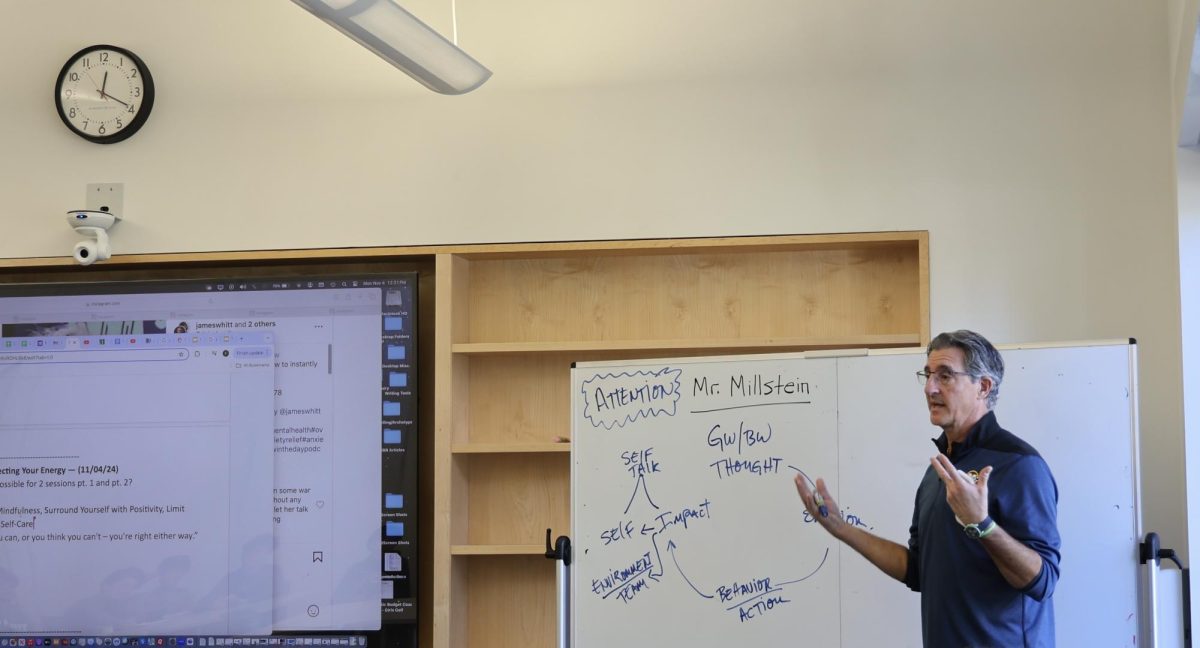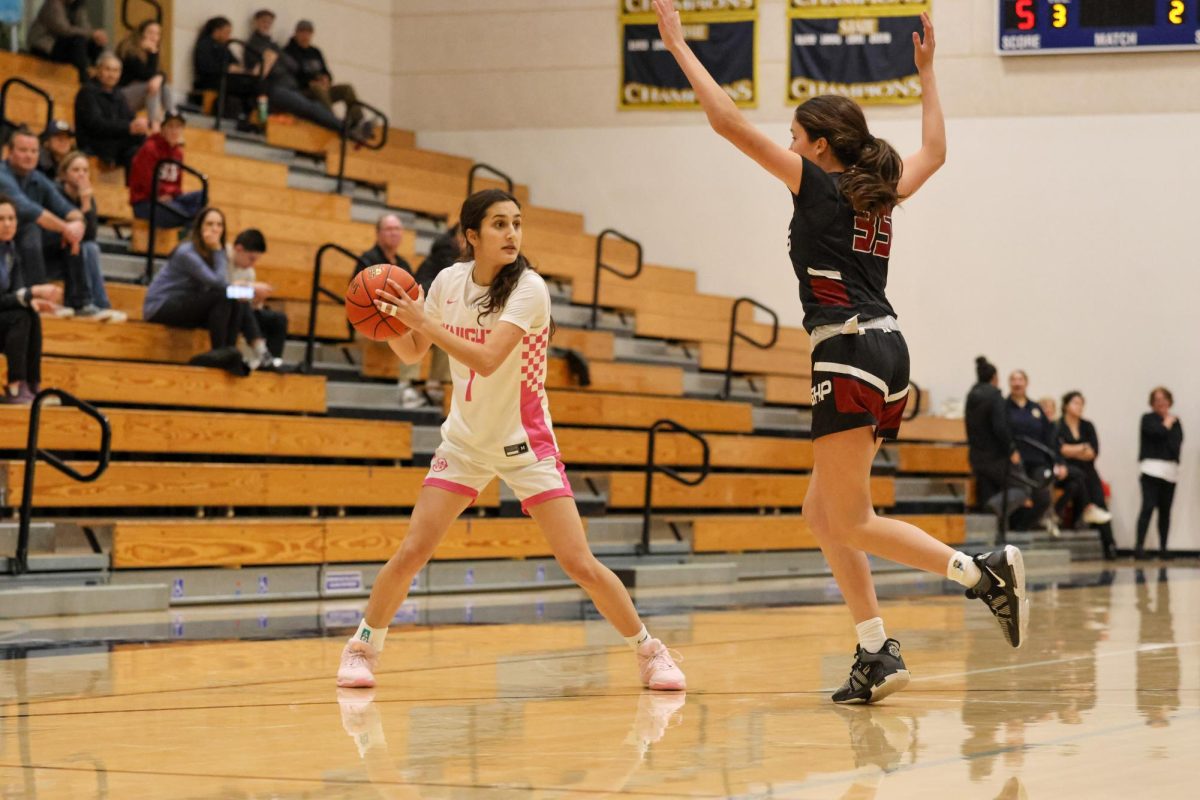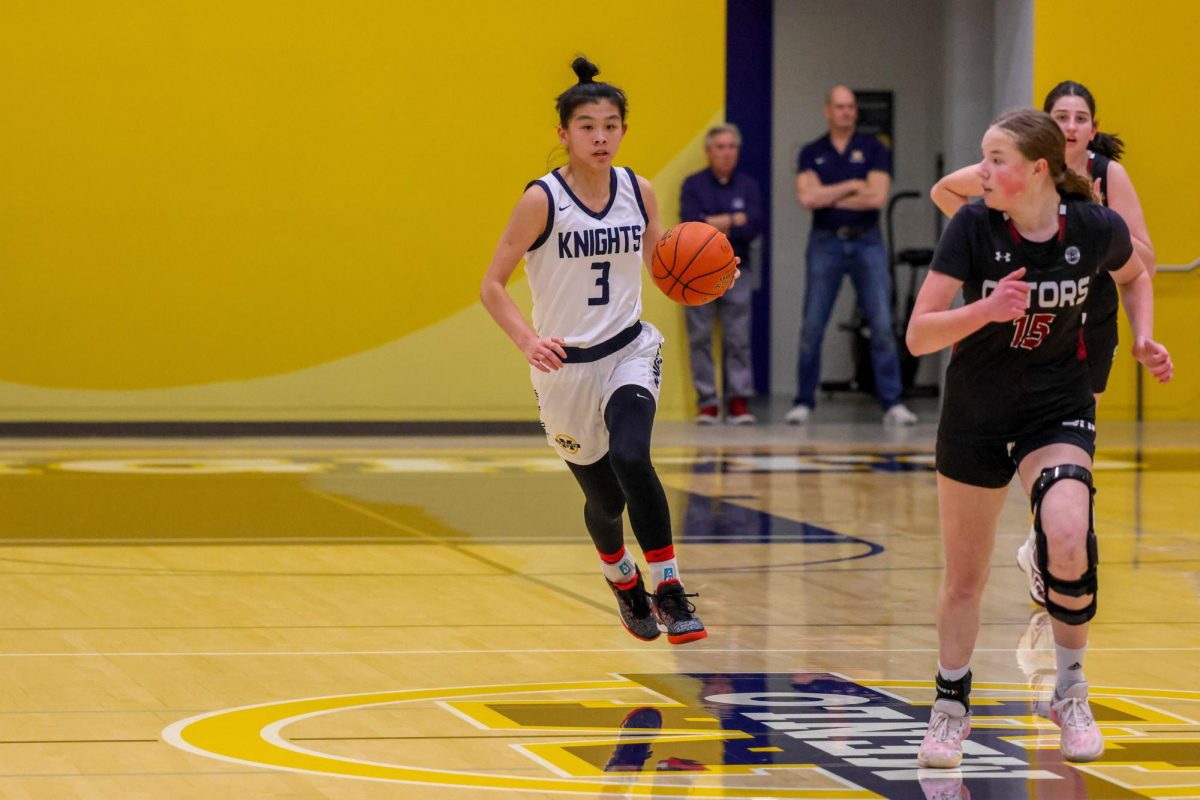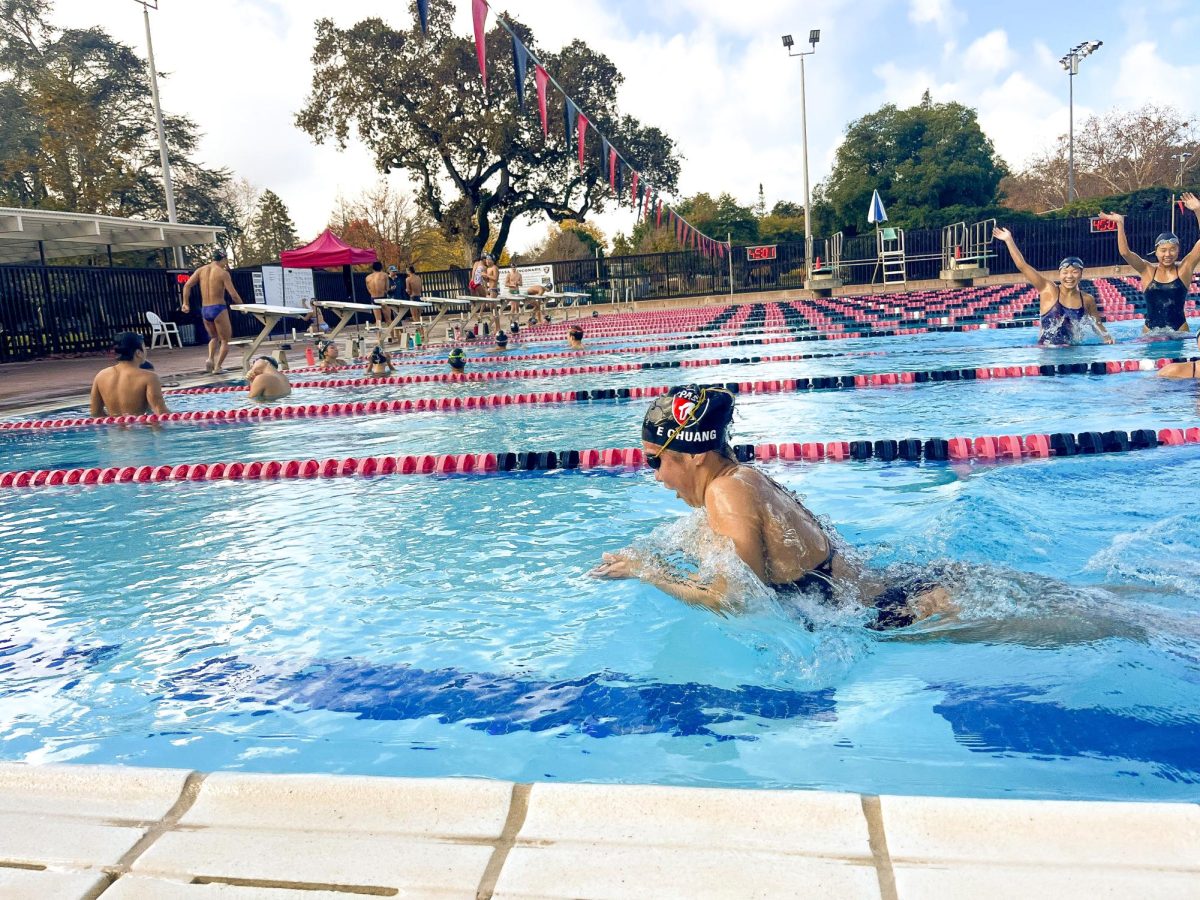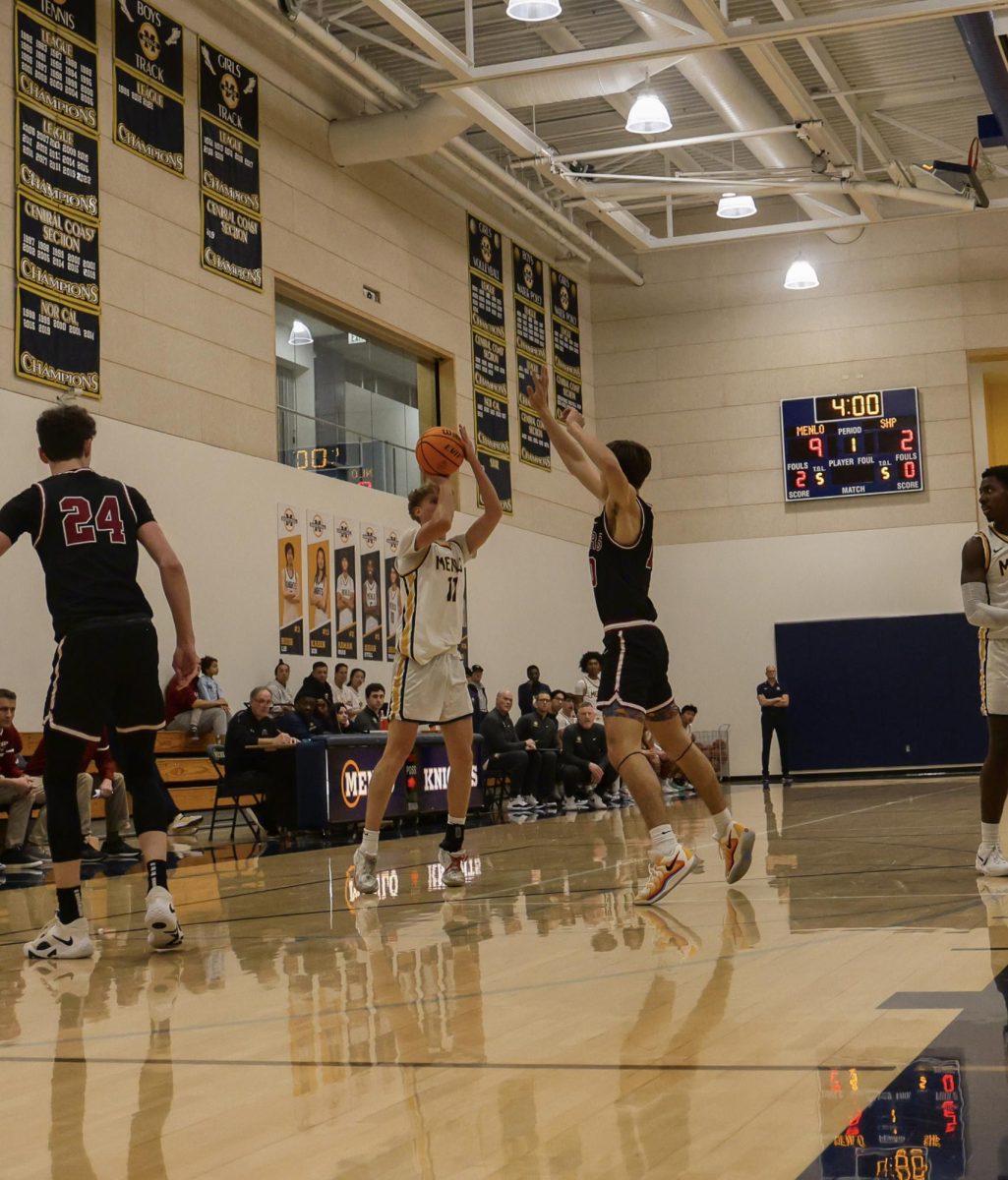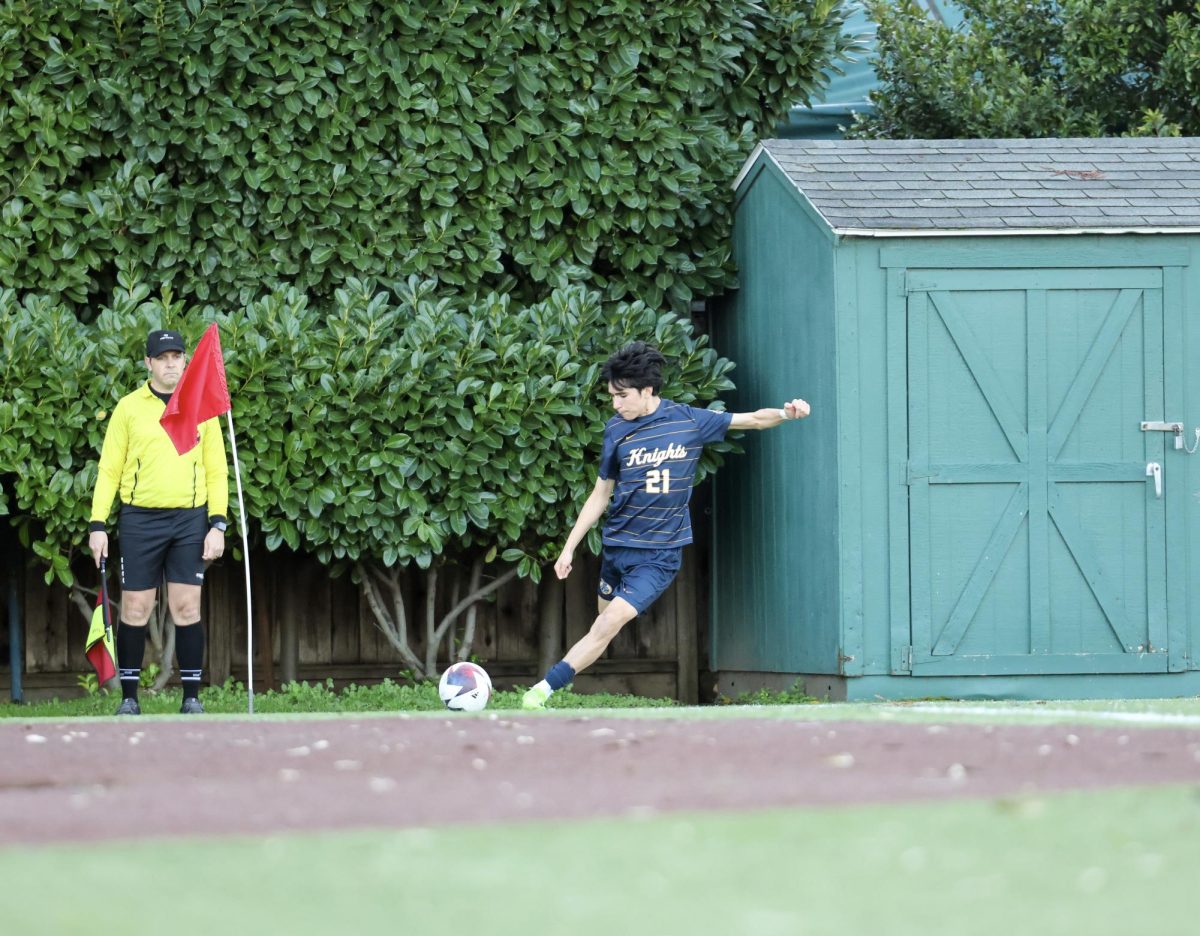Menlo students are adept at balancing the external demands of academics and athletics, but juggling the internal emotions that drive success can be a struggle. Enter the Mental Game Monday Club run by golf assistant coach Francis Santora and Assistant Director of Sports Performance Cole Marmor, where students are taught how to manage and channel the anxieties that are a part of any academic or athletic endeavor.
Mental Game Monday is a Menlo-wide expansion of the pilot program that Santora initially ran with the Menlo golf, tennis and soccer teams. “I wanted to create a situation where student-athletes could be peer-to-peer support for each other,” he said.
The mindset of finding value in learning from ups and downs helps more than just athletes, which Marmor notes is a way to reach the wider Menlo community. Marmor himself joined the club after hearing about the positive impact of the Mental Game program from students. “We wanted to extend those resources to the rest of the school, so open it up not only to athletes, but [to] students as well, and then also incorporate more of the coaches or even any professionals or educators on campus,” Marmor said.
Developed from the “The Confident Mind” by Dr. Nate Zinsser, Santora presents a new lesson at each of the club meetings and then reinforces the message through social media content and guest speakers. The first meeting introduced methods of channeling attention to break cycles of negativity that lead to poor performance and subsequent meetings have covered lessons on gratitude and faith, each topic building from prior lessons. By the end of the year, Santora hopes that students will drive the conversation from what they have learned and choose their own topics for club meetings.
Santora also makes use of social media content from professional athletes and scientists to power engagement in club meetings. “I began using Instagram videos as a way to stimulate conversation between student-athletes because they are short and to the point. [This] approach might be more successful [because students] can revisit the message if they choose,” he said.
Guest speakers are also a critical component of the curriculum and are invited to offer their own perspectives to meetings. Middle School Athletics Director Benay Weintraub, a former Division III college tennis player and coach, discussed the role of faith in building self-confidence as a crucial part of the path to success for students and athletes alike at Mental Game Monday’s Oct. 21 meeting. “[It is critical to] really [have] faith in yourself when you’re going through all these different [points in life], whether they’re good or bad,” she said. “Ultimately, you’ll end up where you’re with the right people [and] you’re in the right place that’s safe for you to grow mentally and professionally.”
Freshman Kurt Kohn, a member of the JV football team, regularly attends the club upon his coach’s recommendation. It has helped him reframe the lessons of wins and losses. “Even [with] bad experiences — for example, if you lose a game — there’s room to improve. There’s more knowledge than if you won because if you win, you don’t really think about how you won,” Kohn said.


